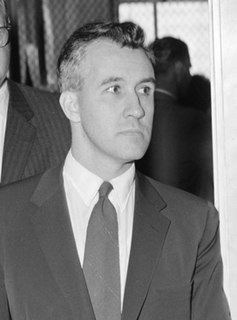Top 206 Descriptions Quotes & Sayings - Page 4
Explore popular Descriptions quotes.
Last updated on April 17, 2025.
Look, words are like the air: they belong to everybody. Words are not the problem; it's the tone, the context, where those words are aimed, and in whose company they are uttered. Of course murderers and victims use the same words, but I never read the words utopia, or beauty, or tenderness in police descriptions. Do you know that the Argentinean dictatorship burnt The Little Prince ? And I think they were right to do so, not because I do not love The Little Prince , but because the book is so full of tenderness that it would harm any dictatorship.
Still in my coat and hat, I sank onto the stair to read the letter. (I never read without making sure I am in a secure position. I have been like this ever since the age of seven when, sitting on a high wall and reading The Water Babies, I was so seduced by the descriptions of underwater life that I unconsciously relaxed my muscles. Instead of being held buoyant by the water that so vividly surrounded me in my mind, I plummeted to the ground and knocked myself out. I can still feel the scar under my fringe now. Reading can be dangerous.)
So many misconceptions surround the notion of heroism. Far too many categorize a hero as a champion on the battlefield, a commander of legions, a master of rare talent or ability. Granted, there have been heroes who fit those descriptions. But many men of great evil as well. Heed me. A hero sacrifices for the greater good. A hero is true to his or her conscience. In short, heroism means doing the right thing regardless of the consequences. Although any person could fit that description, very few do. Choose this day to be one of them." (Beyonders - A World Without Heroes)
The Southern newspapers, with their advertisements of negro sales and personal descriptions of fugitive slaves, supply details of misery that it would be difficult for imagination to exceed. Scorn, derision, insult, menace - the handcuff, the last - the tearing away of children from parents, of husbands from wives - the weary trudging in droves along the common highways, the labor of body, the despair of mind, the sickness of heart - these are the realities which belong to the system, and form the rule, rather that the exception, in the slave's experience.
If you're up on a stage, naked and solo and singing songs to people, there's not much place to hide, so you may as well confess what you want to confess and say what you want to say, whatever that is. Some songs just turn out as being more about me, and some are more through the eyes of other people, or third-person descriptions of people.
If we were magically shrunk and put into someone's brain while she was thinking, we would see all the pumps, pistons, gears and levers working away and we would be able to describe the workings completely, in mechanical terms, thereby completely describing the thought processes of the brain. But that description would not contain any mention of thought! It would contain nothing but descriptions of pumps, pistons, levers!
Wave particle duality is a core feature of our world. Or rather, we should say, it is a core feature of our mathematical descriptions of our world. But what is critical to note here is that, however ambiguous our images, the universe itself remains whole and is manifestly not fracturing into schizophrenic shards. It is this tantalizing wholeness and the thing itself that drives physicists onward like an eternally beckoning light that seems so teasingly near. It is always out of reach.
The Four Noble Truths are pragmatic rather than dogmatic. They suggest a course of action to be followed rather than a set of dogmas to be believed. The four truths are prescriptions for behavior rather than descriptions of reality. The Buddha compares himself to a doctor who offers a course of therapeutic treatment to heal one’s ills. To embark on such a therapy is not designed to bring one any closer to ‘the Truth’ but to enable one’s life to flourish here and now, hopefully leaving a legacy that will continue to have beneficial repercussions after one’s death. (154)
Remarks such as 'great Australian', 'larger than life' are sometimes used where they are not appropriate. But in the case of Kerry Packer both of those descriptions are entirely appropriate. He was a great Australian, he was a larger than life character and in so many ways he left his mark on the Australian community over a very long career in business, particularly in the media and also that other great passion of his, Australian sport
A zeal for different opinions concerning religion, concerning government, and many other points, as well of speculation as of practice; an attachment to different leaders ambitiously contending for pre-eminence and power; or to persons of other descriptions whose fortunes have been interesting to the human passions, have, in turn, divided mankind into parties, inflamed them with mutual animosity, and rendered them much more disposed to vex and oppress each other than to co-operate for their common good.
I cannot find any patience for those people who believe that you start writing when you sit down at your desk and pick up your pen and finish writing when you put down your pen again; a writer is always writing, seeing everything through a thin mist of words, fitting swift little descriptions to everything he sees, always noticing. Just as I believe that a painter cannot sit down to his morning coffee without noticing what color it is, so a writer cannot see an odd little gesture without putting a verbal description to it, and ought never to let a moment go by undescribed.
Just listen,” she said. “You can’t kill him in cold blood.” “Whyever not?” Ye gods grant me patience. “Because he’ll be dead,” she said as patiently as she could, “and Lady Clara’s reputation will be stained forever. Do not, I pray you, do anything, Lord Longmore. Leave this to us.” “Us.” “My sisters and me.” “What do you propose? Dressing him to death? Tying him up and making him listen to fashion descriptions?
Everyone wants rather to be pleasing to women and that desire is not altogether, though it is very largely, a manifestation of vanity. But one cannot aim to be pleasing to women any more than one can aim to have taste, or beauty of expression, or happiness; for these things are not specific aims which one may learn to attain; they are descriptions of the adequacy of one's living. To try to be happy is to try to build a machine with no other specification than that it shall run noiselessly.
The functional freedom that anybody can buy a gun and go out and murder a lot of people at a McDonald's is prevalent, yes. But through the effects of TV and interactive video systems and so forth, we'll also have the freedom to pretend to be a mass murderer for the evening. I've seen descriptions of advanced TV systems in which a simulation of reality is computer controlledthe TV viewer of the future will wear a special helmet. You'll no longer be an external spectator to ?ction created by others, but an active participant in your own fantasies/dramas.
The Da Vinci Code may well be the only novel ever written that begins with the word 'renowned'... I think what enabled the first word to tip me off that I was about to spend a number of hours in the company of one of the worst prose stylists in the history of literature was this. Putting curriculum vitae details into complex modifiers on proper names or definite descriptions is what you do in journalistic stories about deaths; you just don't do it in describing an event in a narrative... Why did I keep reading? Because London Heathrow is a long way from San Francisco International.
Never have I enjoyed youth so thoroughly as I have in my old age. In writing Dialogues in Limbo, The Last Puritan, and now all these descriptions of the friends of my youth and the young friends of my middle age, I have drunk the pleasure of life more pure, more joyful than it ever was when mingled with all the hidden anxieties and little annoyances of actual living. Nothing is inherently and invincibly young except spirit. And spirit can enter a human being perhaps better in the quiet of old age and dwell there more undisturbed than in the turmoil of adventure.
By a generative grammar I mean simply a system of rules that in some explicit and well-defined way assigns structural descriptions to sentences. Obviously, every speaker of a language has mastered and internalized a generative grammar that expresses his knowledge of his language. This is not to say that he is aware of the rules of the grammar or even that he can become aware of them, or that his statements about his intuitive knowledge of the language are necessarily accurate.
If you think reading a book is hard, you should try writing one. Because it's even harder. It's still not as hard as writing a game, though. If you discount the purely visual pop-up parts, a book is made almost entirely of words. As a novelist, you just need to think of a few decent strings of words and then fill the other 98% of the book with more or less random descriptions of things and exclamation points.
When I illustrate a cover or a book, I draw upon what the author tells me; that's how I see my responsibility as an illustrator. J.K. Rowling is very descriptive in her writing — she gives an illustrator a lot to work with. Each story is packed full of rich visual descriptions of the atmosphere, the mood, the setting, and all the different creatures and people. She makes it easy for me. The images just develop as I sketch and retrace until it feels right and matches her vision.
Darwin, Marx, and Freud meet. They may have understood other things, but the human soul, and in particular the soul of Culture-man, they did not understand. Systems like theirs are only historical curiosities to the 20th century, unless they happen to claim to be appropriate descriptions of Reality. Anyone who believes in these antiquated fantasies stamps himself as ludicrous, posthumous, ineffective, and superfluous. No leading men of the coming decades will be Darwinians, Marxians or Freudians.
The outside-in discipline requires that you have an explicit customer-based reason for everything you do in the marketplace. Managers need to create what I call "customer pictures," verbal descriptions of customers that highlight the key customer characteristics and make those customers come alive. Although managers never know as much about customers as they want and need to know, the outside-in discipline requires that they construct customer pictures anyway, basing the pictures on whatever hard data they have plus hypotheses and intuition.
In those same decades, most UFO sightings were made in the daytime and frequently at close range, when shapes and surface features could be distinguished, thus making positive identification of normal sights easier and the descriptions of unusual sights more detailed. When all normal explanations had been eliminated, the witnesses could concentrate on those aspects of the experience which were most abnormal.
What makes a sentence, a phrase, a moment, or a scene delightful? Something about recognizing the truth in it, hearing the music in it, understanding, intuitively perhaps, that the words are just right. It's not a matter of even context - delight is not limited to scenes or descriptions of happiness or beauty - but of aesthetic appreciation of the thing itself. As a reader, I find it's that moment when I want to stop reading, and also that moment when I know I can't. Delight is that it's what takes me by surprise and reminds me why I love the literary arts above all others.
It's no longer possible to simply build English country houses out of words, because they've already been so thoroughly described that all the applicable words have been used up, and one is forced to build them instead out of words recycled and scavenged from other descriptions of other country houses.
Freudian psychoanalytical theory is a mythology that answers pretty well to Levi-Strauss's descriptions. It brings some kind of order into incoherence; it, too, hangs together, makes sense, leaves no loose ends, and is never (but never) at a loss for explanation. In a state of bewilderment it may therefore bring comfort and relief.... give its subject a new and deeper understanding of his own condition and of the nature of his relationship to his fellow men. A mythical structure will be built up around him which makes sense and is believable-in, regardless of whether or not it is true.
I never feel a huge need for backstory in my novels or films. Quick sketches are often enough. When you encounter people in life - like a chance encounter at a bar or wherever you happen to be - you make these incredibly quick, quite intricate decisions about people based on very small amounts of coded information. We're good at that. Long descriptions prior to meeting someone or as you're getting to know them almost don't work.

























